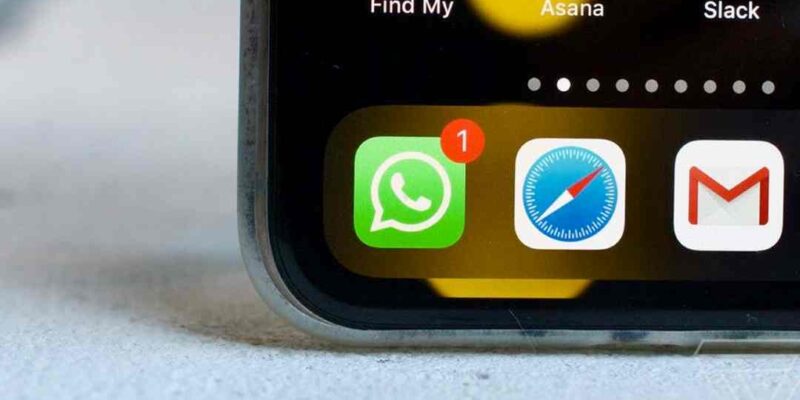WhatsApp has revealed a brand new FAQ web page to its web site outlining its stances on consumer privateness in response to widespread backlash over an upcoming privateness coverage replace. The core challenge pertains to WhatsApp’s data-sharing procedures with Fb, with many customers involved an up to date privateness coverage going into impact on February eighth will mandate sharing of delicate profile data with WhatsApp’s father or mother firm.
That isn’t true — the replace has nothing to do with client chats or profile knowledge, and as an alternative the change is designed to stipulate how companies who use WhatsApp for customer support could retailer logs of its chats on Fb servers. That’s one thing the corporate feels it’s required to reveal in its privateness coverage, which it’s now doing after previewing the upcoming adjustments to enterprise chats again in October.
We wish to tackle some rumors and be 100% clear we proceed to guard your personal messages with end-to-end encryption. pic.twitter.com/6qDnzQ98MP
— WhatsApp (@WhatsApp) January 12, 2021
However a wave of misinformation on social media, not helped by Fb’s abysmal observe report on privateness and its status for obfuscating adjustments to its numerous phrases of service agreements, has resulted in a full-blown WhatsApp backlash that has customers fleeing to rivals like Sign and Telegram.
Tesla CEO Elon Musk has even jumped into the fray, tweeting final week “Use Sign” to his greater than 42 million followers. Because the controversy has grown, Sign has develop into one of the crucial downloaded apps on Android and iOS and its verification system for signing up new customers has repeatedly buckled below the stress. Telegram, which is at present No. 2 behind Sign on the App Retailer, noticed greater than 25 million new customers enroll in simply the final 72 hours.
Telegram surpassed 500 million energetic customers. 25 million new customers joined within the final 72 hours: 38% got here from Asia, 27% from Europe, 21% from Latin America and eight% from MENA. https://t.co/1LptHZb9PQ
— Telegram Messenger (@telegram) January 12, 2021
WhatsApp executives, in addition to Instagram chief Adam Mosseri and Fb AR / VR head Andrew “Boz” Bosworth, at the moment are attempting to set the report straight, maybe to little avail at this level.
There’s a variety of misinformation in regards to the WhatsApp ToS proper now. The coverage replace does *not* have an effect on the privateness of your messages with pals or household in any means. The adjustments are associated to messaging a enterprise on WhatsApp, which is optionally available. https://t.co/b7szUeinKX
— Adam Mosseri (@mosseri) January 12, 2021
This isn’t correct, fwiwhttps://t.co/hUy1AIKCeT
— Boz (@boztank) January 10, 2021
“We wish to be clear that the coverage replace doesn’t have an effect on the privateness of your messages with pals or household in any means. As a substitute, this replace contains adjustments associated to messaging a enterprise on WhatsApp, which is optionally available, and gives additional transparency about how we accumulate and use knowledge,” the corporate writes on the brand new FAQ web page.
It additionally stresses within the FAQ that neither Fb nor WhatsApp learn customers’ message logs or take heed to their calls, and that WhatsApp doesn’t retailer consumer location knowledge or share contact data with Fb. (It’s additionally value noting that knowledge sharing with Fb is extraordinarily restricted for European customers on account of stronger consumer privateness protections within the EU.)
WhatsApp chief Will Cathcart additionally took to Twitter just a few days in the past to submit a thread (later shared by Bosworth within the tweet above) attempting to chop via the confusion and clarify what’s really occurring.
“With end-to-end encryption, we can’t see your personal chats or calls and neither can Fb. We’re dedicated to this expertise and dedicated to defending it globally,” Cathcart wrote. “It’s vital for us to be clear this replace describes enterprise communication and doesn’t change WhatsApp’s knowledge sharing practices with Fb. It doesn’t affect how folks talk privately with pals or household wherever they’re on the earth.”
That’s why we’re so dedicated to end-to-end encryption, and why we hold enhancing the privateness of WhatsApp, resembling with our launch of disappearing messages in November. Our innovation on privateness will proceed.
— Will Cathcart (@wcathcart) January 8, 2021
A little bit of irony in all of that is the info sharing WhatsApp customers are so eager to keep away from has already seemingly been occurring for a overwhelming majority of those that use the messaging platform. The corporate let customers decide out of knowledge sharing with Fb for less than a short period of time again in 2016, two years after Fb bought the platform.
After that, new sign-ups and those that didn’t manually decide out of knowledge sharing have had some WhatsApp data, principally their telephone quantity and profile title, shared with the bigger social community for advert concentrating on and different functions. (For those who did decide out, WhatsApp says it’ll honor that even after the February eighth replace, in response to PCMag.)
For those who take a look at the privateness labels for WhatsApp on the App Retailer, labels Apple solely final month started forcing builders to reveal, you’ll see scores of data that’s marked as “knowledge linked to you,” though solely a novel system ID and app utilization knowledge is listed as used for “developer’s promoting and advertising.” (WhatsApp tried publicly calling Apple out for not making its personal first-party apps adhere to the identical requirements, just for Apple to answer that it does in truth record privateness labels for the iOS apps it develops.)
WhatsApp has develop into a sufferer of Fb’s poor privateness status
Within the upcoming privateness coverage change, language concerning knowledge sharing with Fb was modified, main many to consider the brand new mandated knowledge sharing was a brand new change that would not be averted — though it’s been occurring all alongside. “As a part of the Fb household of firms, WhatsApp receives data from, and shares data with, this household of firms,” reads WhatsApp’s new privateness coverage. “We could use the data we obtain from them, and so they could use the data we share with them, to assist function, present, enhance, perceive, customise, assist, and market our Companies and their choices.”
This complete controversy could also be chalked as much as customers misreading complicated media stories, leaping to conclusions, after which taking part in scaremongering on social media. Nevertheless it’s additionally a actuality Fb should take care of that the shortage of belief in WhatsApp is immediately associated to years of unhealthy religion privateness pledges from Fb and more and more advanced phrases of service agreements no common, non-lawyer consumer can fairly comprehend.
It’s no marvel then that customers are flocking to an app like Sign — managed by a nonprofit and subsisting on donations and rich benefactors like none aside from WhatsApp co-founder Brian Acton — after they really feel they’ll now not belief what’s actually occurring after they message their pals on their smartphone. Now, Fb and WhatsApp face a protracted street of clear communication and trust-building forward in the event that they wish to get these folks again.















Comments